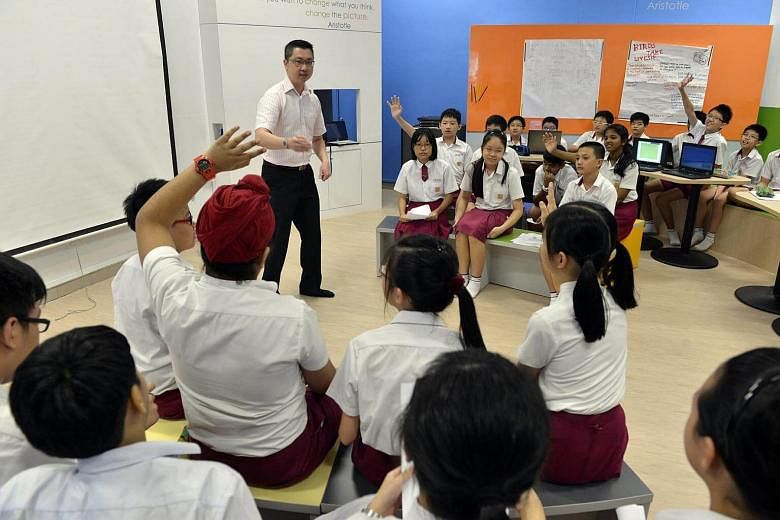In its editorial on Jan 23, the paper discusses Singapore's move to make exam scores a less important measure of success.
Whatever Singapore does when education is concerned, the world stops to watch.
Thailand, in particular, should seriously consider the island nation's revolutionary move, which intriguingly gives conventional exams less importance. The experiment is fledging, of course, but nobody can write it off as a future global norm.
Institutions around the world have used grades to measure students' capabilities from the very beginning. One key argument for that is there is no other way to effectively rate or "pass" students from one level to the next. That is largely true, but educators in Singapore have virtually admitted that grading, in many ways, is counter-productive when "new ideas" are concerned.
Hundreds of Singaporean schools now reportedly have courses with no grades, while at least a tenth of admissions to universities are now based on aptitude assessment rather than results. Meanwhile, Singapore's public service is reportedly scrapping a long-standing practice of classifying officers by educational qualifications.
Singapore is not abandoning its educational philosophy that strives for academic excellence. Only the term "academic excellence" is veering away from the traditional mindset. The new thinking is that grades "force" students to stay in line, which can hamper the formation of new ideas. Additionally, an educational system that highly values grades often tempts students to go for courses that they don't actually like but provides an easy stepping-stone for "recognition."
The world needs no explanation on why new ideas are important. Economic success is heavily linked to innovations, which are impossible if everyone is thinking the same way. Singapore, with its scant natural resources, relies more on innovations than most other countries.
In Thailand, the importance of grades has also been ridiculed, but it's largely comedians who have mocked it. According to a well-known joke, the "best" students end up serving the "second-best" ones, who will in turn end up serving the "third-best" ones. In this joke, "the best students" become academics or business owners, who have to kow-tow to politicians, or "second-best students", who in turn are controlled by the "third-best students" - mobsters or the mafia.
Make no mistake, giving grades less importance requires a highly technical adjustment on the part of the educators, as well as an overhaul of social mindsets. To start with, parents who always want their children to be "the best" and make a lot of sacrifices for that goal, must accept a system that has less regard for scores.
We are living in a world where people often formulate "new ideas" after they have graduated. Most schools have confined radical thinking outside the box although it should have been encouraged more. Charity begins at home, they say, but new ideas should start at schools.
There's still a long way to go for both Singapore and the whole world. For one thing, everybody loves "new ideas" but many don't like "rebellion" that much, although both things go hand in hand quite often. And it's adults, bound by or familiar with the status quo, are the ones tasked with mapping out something drastically new.
Yet the change in Singapore looks like a long-term trend, not least because it has begun in a country whose academic excellence has been the envy of the developed world.
The change also has come at a time when the information technology is generating unprecedented educational opportunities in various unorthodox means. Most of all, such a change in Singapore makes sense because a world of clones is the last thing we want.

